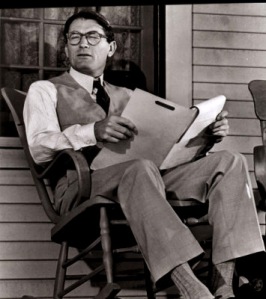Part 3 cont’d from Batmanghelidjh vs. Batty Boy
In Part 2 we looked at two versions of new types of schools. We can debate whether either of these models constitute good schooling. I think it’s exactly this debate (essentially on structural change in education; about how schools could be reorganised) that is good news for UK education. It’s because of this debate, and my hope for the fruits of it, that I believe we may even be about to see a Renaissance in UK education.
A Renaissance?!
Yes. Because the time – the next few years – in which this debate will occur, and its fruits grow (gosh this is a cheesy metaphor) has got some good things going for it:
1. A good place to start from
The foundations for a renaissance are pretty strong. Education today is reaping the benefits of the increased spending of the Blair years.
We have a teaching profession who have been feeling pretty good about themselves. They have a better status and more money than for sometime before ’97. And the profession has lots of new, young, motivated teachers (including recently some new maths teachers fresh from the banking sector).
But for some time we’ve been getting close to realistic limits on education spending. It isn’t clear that more money would make much more difference.
Well now we can’t spend any more and everybody knows it. The debate has to move.
It will be the new entrants, I think, the Young Turks, who will prove instrumental in achieving structural change.
2. Education 3.0
You can’t make a point about anything these days without referencing the social media-internet-tech revolution. And, yes that does have lots of practical and game-changing implications for the classroom.
But what I really mean builds on the Young Turks point above. Is it just me or do my generation look admiringly at the boot-straps, start-up attitude of Silicon Valley et al, in a way that maybe previous generations in Britain haven’t looked at entrepreneurialism before?
What is exciting about education at the moment, for sure, is the talk of hacking or disrupting it (the A VC blog talks a good talk on this). Education 3.0 (yes, that is my tongue slightly in my cheek for the silly name) is about taking that Silicon Valley attitude of entrepreneurial disruption into the school system – one of (the?) most conservative and outdated of institutions.
What if we looked at the fundamentals of education and found a more efficient way to make it work? Those in the education Renaissance are in a good position to do for education what Amazon did for retail or Apple for music.
Ps. There’s not a bad track record of disruption coming out of recessions.
3. Change is a-comin’
Amazingly the Tories may be talking some of the right ideas. They want a focus on outputs. They seem to want to break down the monolith – making it easier to start new schools.
And it looks pretty likely that they’ll be winning the next election.
Plus, we live in grassroots days. Bottom-up movements have been inspired by Obama and the power of the internet.
I think we could be about to see pressure for structural change in education coming effectively from both the top and the bottom.
………..




 Pretty much anybody I meet I try to friend on Facebook. I’m friends with my dad, I’m friends with some kids I used to teach, my colleagues, my uni friends, school friends, some people I’ve only ever met once, and I’m sure I’m friends with some people I don’t actually like.
Pretty much anybody I meet I try to friend on Facebook. I’m friends with my dad, I’m friends with some kids I used to teach, my colleagues, my uni friends, school friends, some people I’ve only ever met once, and I’m sure I’m friends with some people I don’t actually like.

 This is from my
This is from my 